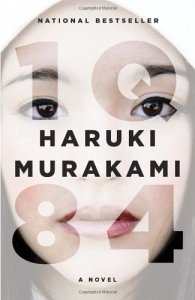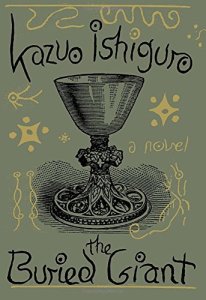Fantasy is an enduring genre with multitudes of fans, yet many literary types dismiss it. Why? To be honest, a lot of fantasy suffers from a problem that afflicts much speculative fiction (science fiction, dystopian fiction. . .a loose term). Unfortunately, a lot of fantasy is not well-written, or not particularly well-written. Many fans of speculative fiction are in it for the ideas or the plot, or both–not for the writing.
I’m reminded of the comment a friend of mine makes about tomatoes. When you bite into one, too often the reaction is merely meh. But when you bite into a good one–heaven! Poorly written fantasy: meh. When you bite into beautifully written fantasy–heaven!
Here’s an interesting post about this very topic, and from one of the masters of speculative fiction, Kazuo Ishiguro. (Wait a second. Let me rephrase that. One of the masterly writers of our time, in any genre.):
http://www.bbc.com/culture/story/20150605-why-do-people-hate-fantasy
Ishiguro has just published a work of unblushing fantasy, The Buried Giant. His speculative-fiction novel, Never Let Me Go, skirted the boundaries of science fiction, but this new novel places itself squarely in the realm of fantasy.
Great literary fantasy may have come into its own in these early decades of the 21st century. I’m thinking especially of Haruki Murakami’s massive 2011 novel 1Q84.

Some love it, or at least admire it, such as Charles Baxter of The New York Review of Books, who invented a whole new term, “Unrealism,” to describe the flavor of speculative fiction that it employs:
http://www.nybooks.com/articles/archives/2011/dec/08/behind-murakamis-mirror/
Michael Dirda, of The Washington Post, calls Murikami “a brilliant practitioner of serious, yet irresistibly engaging, literary fantasy” and claimed he couldn’t put the book down:
NPR’s Alan Cheuse loved it:
http://www.npr.org/2011/10/17/141434063/book-review-1q84
But plenty of respected reviewers disliked or even hated it. Janet Maslin, of The New York Times, panned it, calling anyone who reads every page of the massive thing a “sucker”:
The Guardian didn’t like it much, either, calling it an over-hyped “bleak fairy tale”:
http://www.theguardian.com/books/2011/oct/16/1q84-haruki-murakami-review
Allen Barra, the reviewer at The Atlantic, called it “disappointing” and “a flop”:
In his BBC interview, Kazuo Ishiguro enters the debate about literary fantasy. He notes that “Most genre boundaries. . .were created by the book industry.” These artificial marketing distinctions, he thinks, account for much of the “sheer prejudice” against fantasy that he has experienced over the publication of The Buried Giant. He concludes with this statement: “I’m against all kinds of imagination police.”
What do you think? Were the imagination police at work on Murikami’s 1Q84? Are they at work, as Ishiguro charges, on his new novel, The Buried Giant? James Wood of The New Yorker despises it (but seems to despise other Ishiguro novels too):
http://www.newyorker.com/magazine/2015/03/23/the-uses-of-oblivion
Yet Wood claims to admire Ishiguro’s attempt: “Tastes differ, and Ishiguro is welcome to his Arthurian chain metal. (You can’t help admiring a writer who so courageously pleases himself, who writes so eccentrically against the norms.)” Wood goes on to enumerate novelists whom he thinks could have pulled such a story off, so perhaps he isn’t a perpetrator of the “sheer prejudice” that Ishiguro decries. Perhaps he just dislikes Ishiguro. (Wood loves William Golding’s matchless The Inheritors, so maybe I forgive him his snark at Ishiguro’s expense. Maybe.)
Ishiguro, for his part, claims he was just trying to tell a story, and that the fantasy setting came about almost by accident. He says he was actually trying to write a story that could resurrect “societal memory” and noted that such a story could have been set in Rwanda, or Northern Ireland during the Troubles, or Kosovo. For my own part, I’m thinking Ishiguro has nailed what fantasy is and does. “Societal memory” is exactly what fantasy is all about.
I haven’t read The Buried Giant yet, but now I’m eager to do so. More later. Stay tuned!


I must say it was hard to find your blog in search results.
You write great articles but you should rank your website higher in search engines.
If you don’t know 2017 seo techniues search on youtube: how
to rank a website Marcel’s way
LikeLike